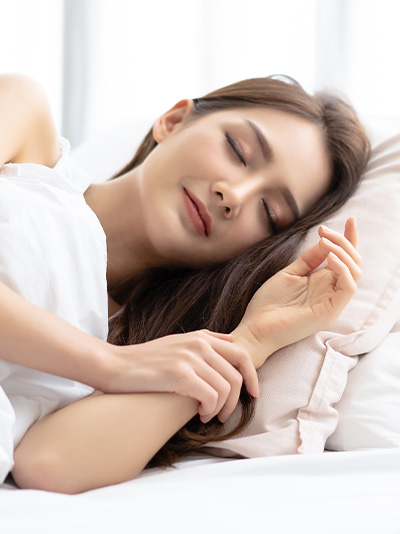Are you drowsy during the day with no explanation? Do you snore loudly or wake up breathless in the middle of the night? If you're experiencing any of these symptoms, you may be one of more than 12 million Americans who are affected by sleep apnea or disruptive sleep.
What is sleep apnea/disruptive sleep?
Sleep apnea is a condition in which your breathing stops periodically during sleep, as many as 20-30 times per hour. Each time you stop breathing in your sleep, the resulting lack of oxygen alerts your brain, which temporarily wakes you up to restart proper breathing. Since the time spent awake is so brief, most people with sleep apnea don't remember it, and many believe they are getting a good night's sleep when, in fact, they are not. The constant wake-sleep, wake-sleep cycle prevents those with sleep apnea from achieving deep sleep, resulting in a constant drowsy feeling during the day.
What are the signs of sleep apnea?
The following symptoms can indicate the presence of sleep apnea. If you notice one or more of these, contact our practice.
- Insomnia or difficulty sleeping
- Loud snoring at night
- Waking up at night short of breath
- Snorting or choking sounds during the night (indicating a restart of breathing)
- Headaches upon waking in the morning
- Falling asleep unintentionally during the day
- Extreme drowsiness throughout the day
Oral Appliance Therapy
Treatments for sleep apnea depend on the severity of each individual case, and the type of apnea. In situations of mild to moderate sleep apnea, a dental appliance may be deemed the appropriate treatment. Worn in a similar fashion to a mouthguard or an orthodontic retainer, it is designed to help keep the tongue and soft tissues in the back of the throat from collapsing, thereby enabling the airway to stay open during sleep. An oral appliance is easy to wear, easy to care for, comfortable, and portable. Oral appliances are individually fabricated, and customized for both maximum effectiveness and comfort.
